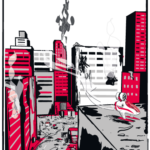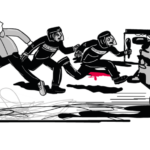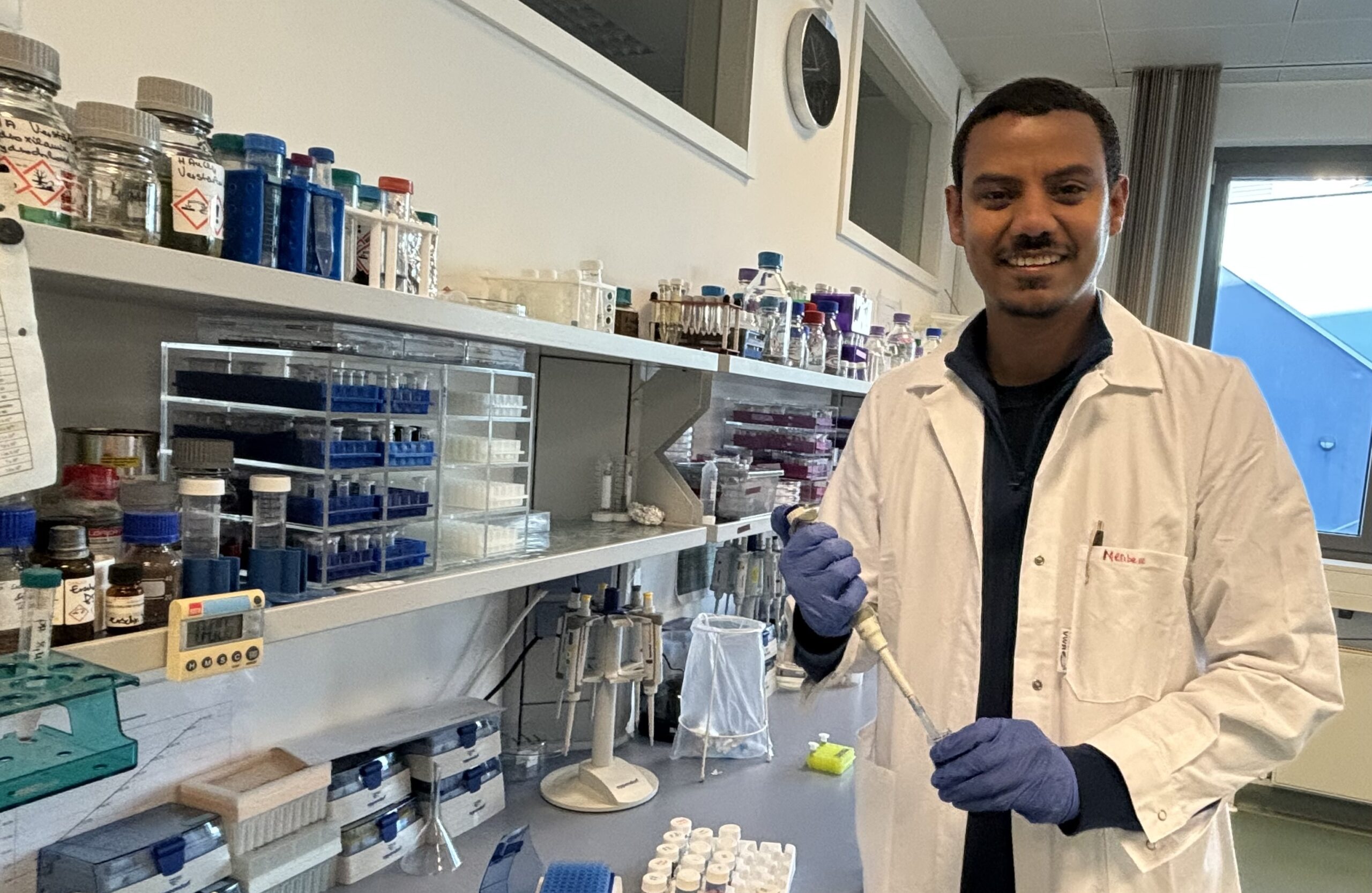Hunt for the killer germ: New science comic “Lasergirl” tells infection research as a superheroine adventure

Batman and Iron Man have to invent the technologies that give them superpowers – and yet they remain science fiction. With Lasergirl, it’s the other way around: her superpower is real – because it’s science, not fiction.
On July 7, 2021, the Leibniz Institute of Photonic Technology (Leibniz IPHT) presented the new science comic “Lasergirl” together with Federal Research Minister Anja Karliczek in Berlin. Lasergirl’s superpower is light. Her secret weapon is a method that researchers in Jena and Europe have developed to quickly detect life-threatening infections. “Lasergirl: Hunt for the Killer Germ” is available now as a free e-book on popular platforms and at lasergirl.de. Currently, it is only available in German.
An unknown danger lurks in the body world. The immune police are trying to bring the situation under control. But who are they really fighting? In an action-packed comic adventure, Lasergirl sets out on a journey inside the body to set a trap for the killer germ. Her secret weapon is a method developed by a research team from the Leibniz Institute of Photonic Technology (Leibniz IPHT) and Jena University Hospital with European partners to quickly detect life-threatening sepsis – colloquially known as “blood poisoning” – with the help of optical technologies and artificial intelligence.
Action-packed journey inside the body
The research and communication team of Leibniz IPHT has received the Ralf Dahrendorf Prize for the European Research Area in 2019 for its research into the light-based diagnostic procedure and for the idea of telling about it in a comic. With this award, the German Federal Ministry of Education and Research (BMBF) honors creative concepts in science communication.
Insight into the creation of a life-saving technology
The idea and script for the comic came from Lavinia Meier-Ewert and Daniel Siegesmund, and it was drawn by the Weimar illustrator Sandruschka. The scientists who researched the presented diagnostic method are also in the comic in Lasergirl’s team: Prof. Dr. Jürgen Popp, scientific director of the Leibniz Institute of Photonic Technology, Prof. Dr. Ute Neugebauer and Dr. Anuradha Ramoji from Leibniz IPHT and the Center for Sepsis Control & Care (CSCC) at Jena University Hospital (UKJ), and intensive care physician and sepsis expert Prof. Dr. Michael Bauer, Director of the Clinic for Anesthesiology and Intensive Care Medicine at the UKJ.
The knowledge section provides material for teaching
The Lasergirl comic provides readers aged 10 and older with an insight into a technology that can save lives. Because sepsis is often detected too late with current diagnostic methods. This life-threatening condition affects around 280,000 people in Germany every year; more than a stroke, than breast or colon cancer. Almost every fourth person does not survive sepsis. What happens when the immune system turns against its own body during sepsis? Why are multi-resistant germs so dangerous? And how can they be stopped? A knowledge section explains how it actually works to identify germs with a laser. And what all has to happen before the life-saving technology is used at the bedside. “Lasergirl: Hunt for the Killer Germ” is available as a free e-book at lasergirl.de and the usual e-book platforms. The comic can also be used in the classroom.

Lasergirl: Hunt for the killer germ
Published by Leibniz Institute of Photonic Technology
Story & Text: Lavinia Meier-Ewert & Daniel Siegesmund
Illustration: Sandruschka
ISBN 978-3-9822875-1-5
Leibniz Institute of Photonic Technology
Light is at the center of research at Leibniz IPHT. Scientists research innovative photonic methods and tools for application in clinical diagnostics, such as infection and cancer diagnostics, pharmacy and process control, as well as food and environmental safety. A key objective is to accelerate translation: the translation of research results into practice – from Ideas to Instruments. Leibniz IPHT has received numerous awards for its technological solutions for improved diagnostics of cancer and infectious diseases, most recently the Ralf Dahrendorf Prize for the European Research Area awarded by the German Federal Ministry of Education and Research (BMBF), the Thuringian Research Prize 2019, the Kaiser Friedrich Research Prize 2018, and the 3rd prize of the prestigious Berthold Leibinger Innovation Prize 2018.










